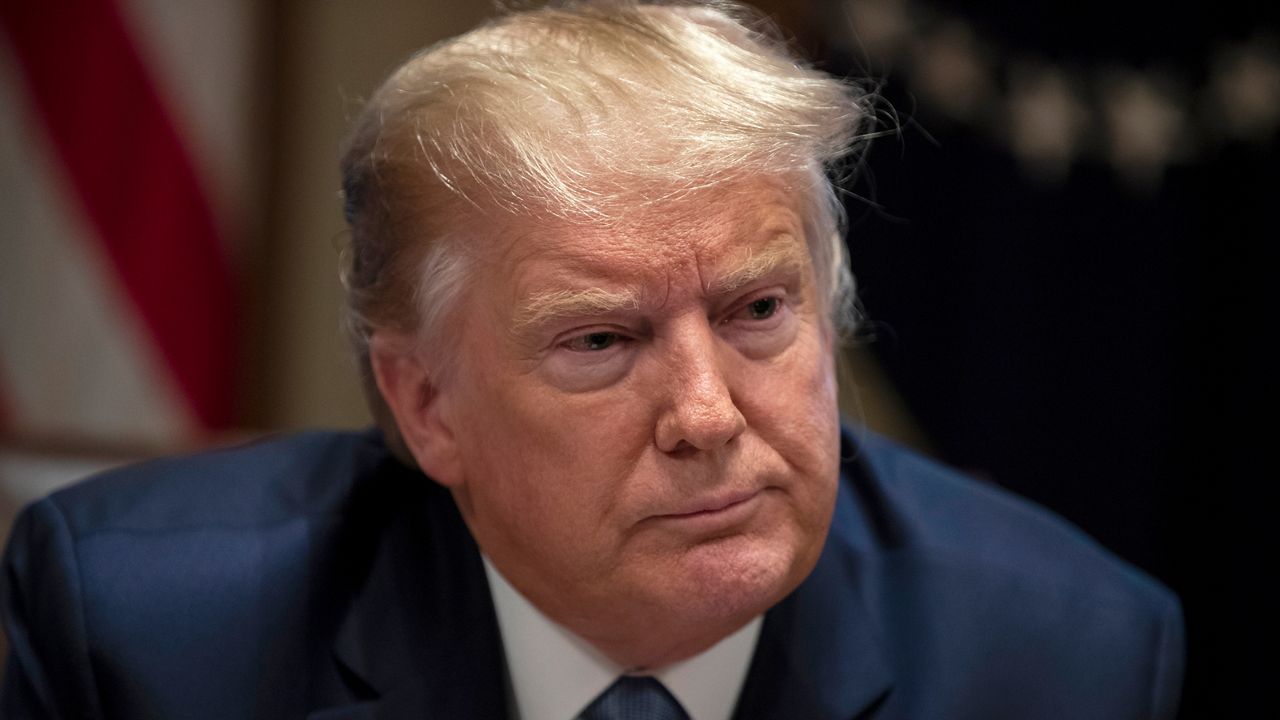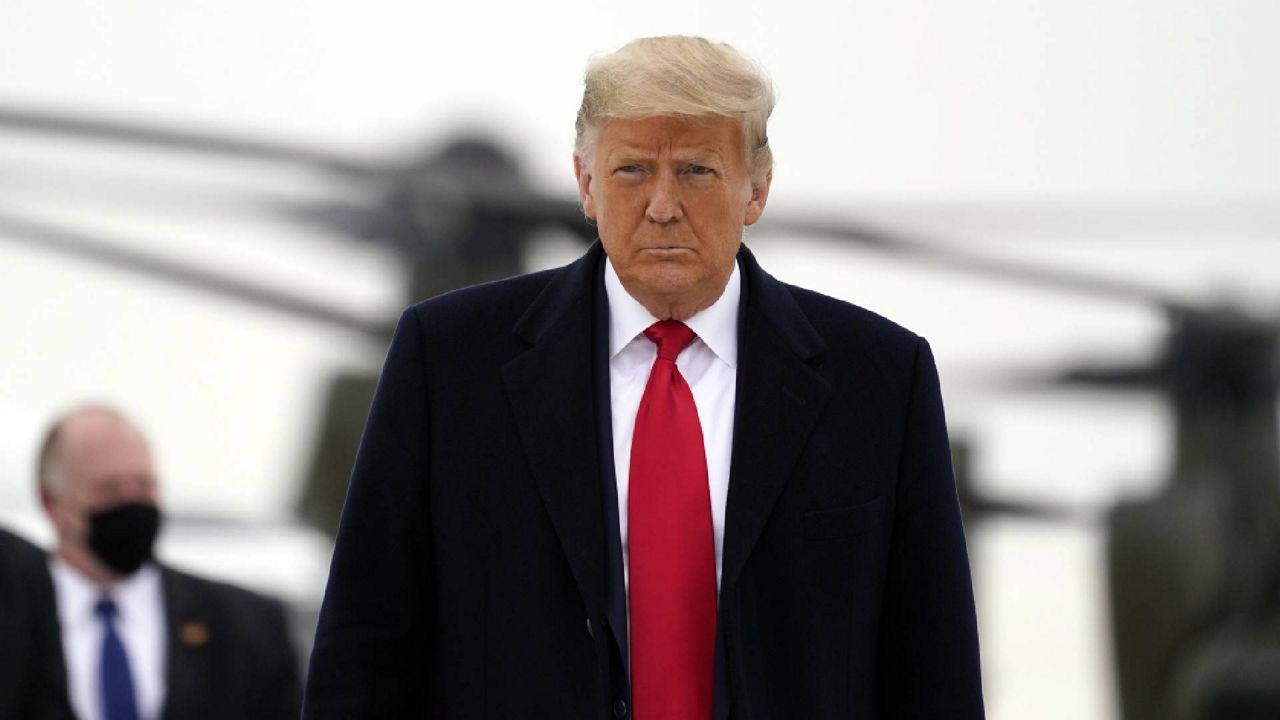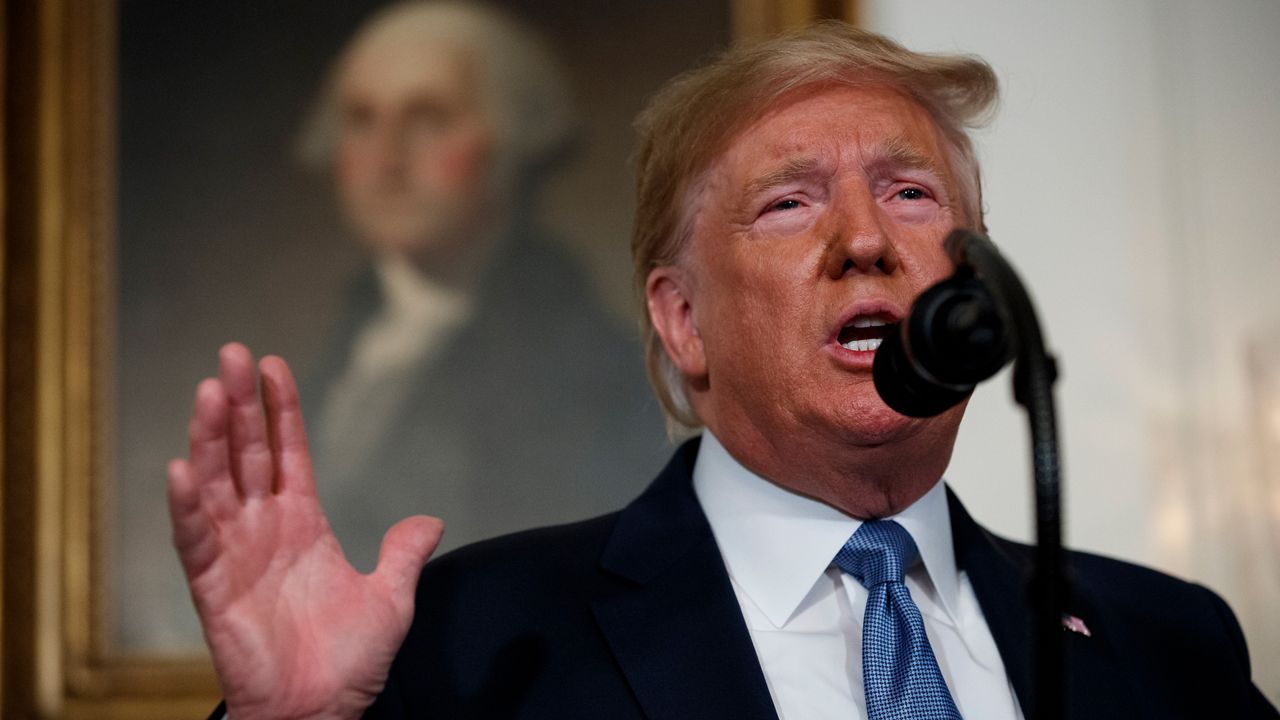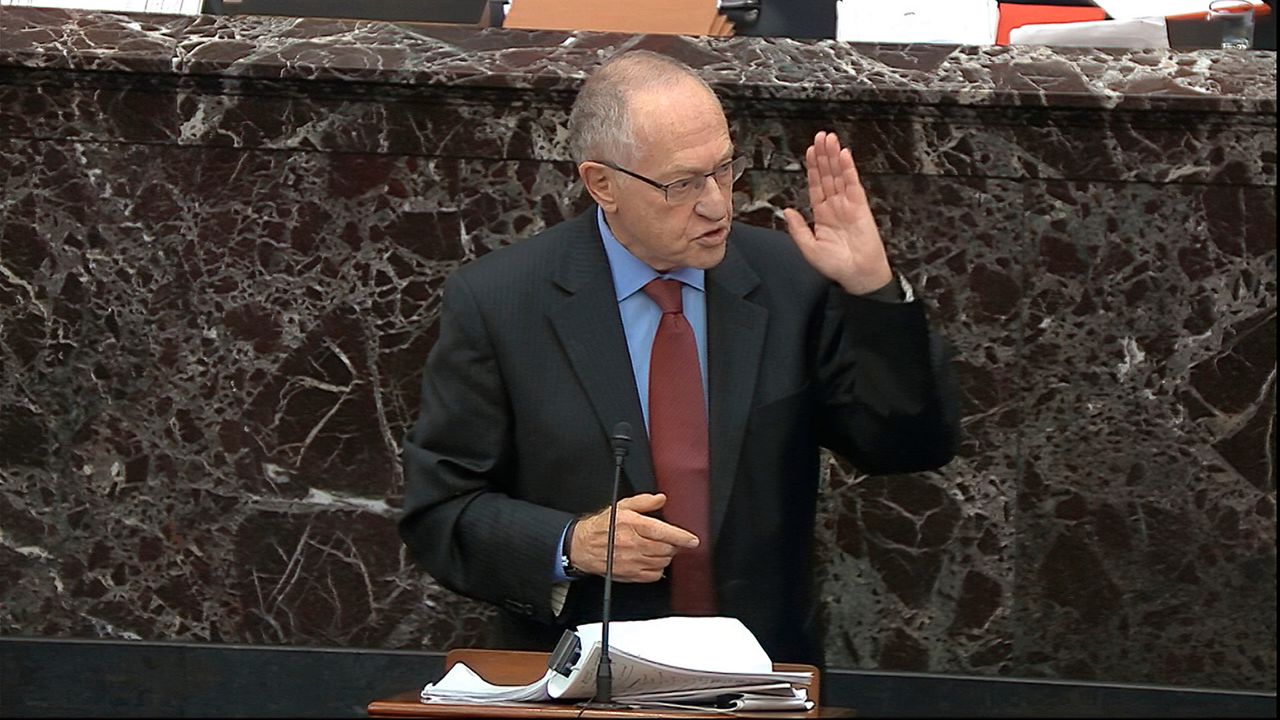President Donald Trump on Wednesday became just the third United States president to be impeached.
Trump was impeached on two articles of impeachment: abuse of power by a 230-197 margin, and obstruction of Congress by a 229-198 margin.

What happens now that the New York native has been impeached? Here are answers to some frequently asked questions:
Has President Trump Been Removed From Office?
No. A House of Representatives impeachment vote is just one step in the potential removal of a president. In a trial, the Senate has the final say on if a president is convicted and removed from office.
The Constitution gives the Senate "the sole power to try all impeachments." Senate rules are clear that whenever the House votes to impeach, the Senate must hold a trial. Majority Leader Mitch McConnell of Kentucky had said the Senate would hold a trial if the House impeaches Trump.
The House, meanwhile, was tasked with appointing managers who will prosecute the case.
When Will the Trial Happen?
An exact start date has not been confirmed, but it is expected to happen in early 2020 and could last several weeks.
The Senate has rules for impeachment trials, but some key questions, such as the length of the proceeding, must be worked out between McConnell and Sen. Charles Schumer of New York, the Democratic leader.
Their predecessors as leaders, Republican Trent Lott of Mississippi and Democrat Tom Daschle of South Dakota, agreed on a basic outline before Bill Clinton's trial began, deferring more difficult issues, including witnesses, until later.
McConnell might favor as short a trial as possible since he has said he sees no chance that Trump could be convicted. Five Democratic senators are running for president, and they may prefer to be elsewhere in January, like the early voting states of Iowa or New Hampshire.
Schumer on Sunday proposed a trial that would begin the week of January 6 and feature four witnesses, including acting White House chief of staff Mick Mulvaney and former national security adviser John Bolton, but McConnell rejected the request. Schumer cited the rules for Clinton's trial, which lasted just over a month in early 1999. Andrew Johnson's impeachment trial in 1868 lasted just over two months.
Some Republicans have talked about calling Joe Biden's son Hunter and other witnesses whom Democrats refused to summon in the House proceedings, portending a longer trial. Trump has accused the Bidens of engaging in corrupt dealings when Hunter Biden accepted a lucrative position with a Ukrainian energy firm while his father handled U.S.-Ukraine relations as vice president.
How Many Votes Are Needed For Conviction?
An impeachment trial is different from a House vote in that the bar is higher. Instead of a simple majority that is required in the House, two-thirds of senators present (67 out of 100 if all senators attend) are needed to convict and remove the president from office.
What Will the Trial Look Like?
In some respects, a Senate impeachment trial resembles a typical courtroom proceeding with a judge — Chief Justice of the United States John Roberts, in this case — presiding and a jury, albeit a 100-member one. But there are important differences.
For one, while senators determine the outcome, they also set the rules for the trial, may ask questions, and can be witnesses.
While courtroom jurors are screened for possible biases, voters already have selected the jury in elections that gave Republicans a Senate majority, with 53 seats. The GOP could insist on rules benefiting Trump, including limiting witnesses, though it would take just three Republicans to foil a party-line effort.
Even if all Democrats vote to convict Trump, the Democratic House managers still need to win over more than one-third of Republican senators for a conviction — a formidable task. By comparison, in the Clinton trial, Republican managers couldn't win over a single Democrat and several Republicans voted to acquit.
To make their case, the managers are likely to give opening and closing arguments that could last for several days and respond to senators' questions that also could be time-consuming. They also might question any witnesses. Trump's defense team would have equal time to rebut the charges. Each step, as well as the time it takes to reach agreement on the rules, takes days, if not weeks.
The president himself could take part, although that would be unprecedented. Senate rules call on the person impeached, or a representative, to answer the charges. The Clinton legal team that handled those tasks in 1999 included his top White House lawyers, but also Dale Bumpers, a former Democratic senator from Arkansas who was at ease in the chamber in which he served for nearly a quarter-century. White House counsel Pat Cipollone appears to be coordinating Trump's defense.
Another possibility: a simple majority of the Senate could vote to end the trial quickly. This is yet another topic that could be hashed out in negotiations.
Republicans might want to bring the trial to a quick end, but several GOP senators from swing states are committed to a full, fair trial and may want to avoid any appearance of partisanship or taking sides on behalf of Trump.
In Clinton's trial, Lott and Daschle allowed Democratic Sen. Robert Byrd of West Virginia to move for dismissal a couple of weeks after the proceedings began, but his motion failed basically along party lines.
The chief justice could also decide questions of evidence and procedure that are not spelled out in Senate rules. That means he could, in theory, allow the House Democrats serving as prosecutors to call the witnesses they want. Some lawyers suggest this could allow Democrats to bypass White House impediments to getting testimony from high-level administration officials.
But unlike in a courtroom where the judge's ruling is final, the Senate can override Roberts's decisions by a majority vote. The chief justice also might avoid injecting himself into the proceedings by using the escape clause he is given in the standing rules: Roberts can "submit any such question to a vote of the Members of the Senate."
Has a President Ever Been Removed From Office This Way?
No, but Johnson came extremely close. In his trial, the Senate voted 35 to 19 to convict the president on all three articles of impeachment he faced, just one vote shy of the magic number to give him the boot.
By comparison, Clinton's trial was far less dramatic. He was acquitted on both articles of impeachment he faced. The perjury charge failed 55-45 while the obstruction of justice charge resulted in a 50-50 split. Republicans could not convince any Democratic senators to convict him, and they lost five Republican votes on one impeachment article and 10 on the other.
Richard Nixon ended up leaving office, but that's because he resigned the presidency during his impeachment proceedings when it became clear he had lost support from most of his political allies.
What Happens If Trump Is Convicted?
If the president is convicted, the country would enter an unprecedented situation. Trump would be automatically removed from office, and Vice President Mike Pence would become president. It's not clear how quickly the succession would happen, but the Constitution does not contemplate any gap between a Senate vote to convict and the new president assuming power. "In the case of the removal of the President from office or of his death or resignation, the Vice President shall become President," the 25th Amendment says.







